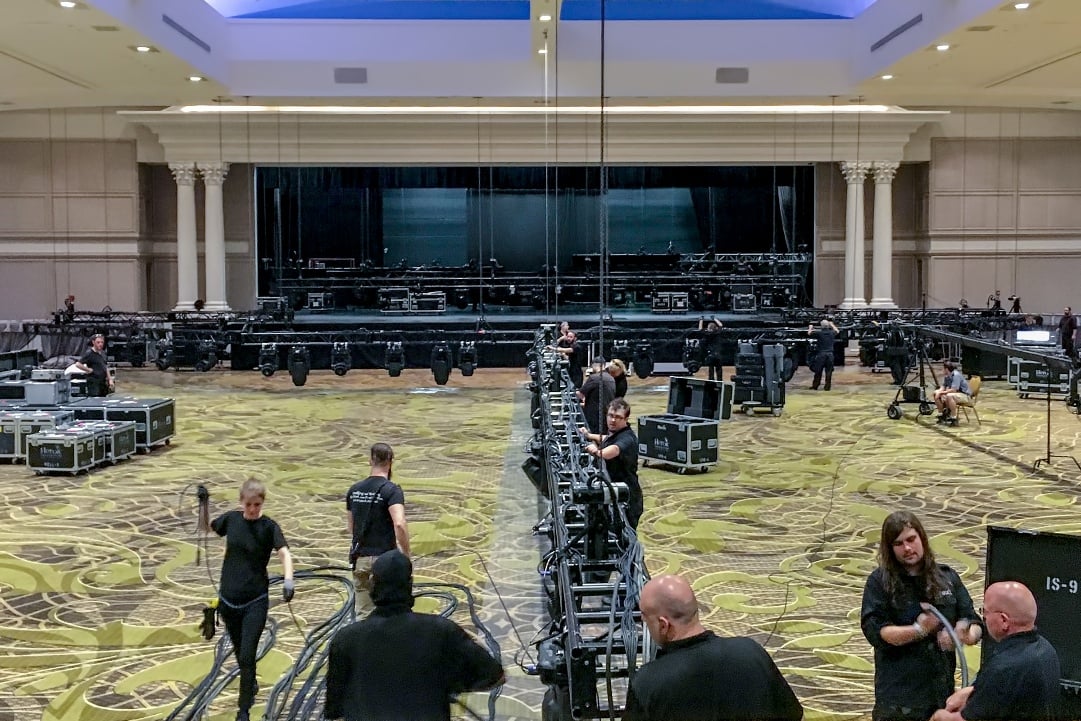March 28, 2019
What to Know When Working With a Union Venue
 As you’re looking for that perfect location for your next event, be sure to ask this question: is it a union venue? If so, that fact may affect your budget and will likely impact how you schedule certain elements of your production. What, exactly, does it mean to work with a union facility? There are different types of unions – governing different jobs – so let’s look at the basics from an AV perspective.
As you’re looking for that perfect location for your next event, be sure to ask this question: is it a union venue? If so, that fact may affect your budget and will likely impact how you schedule certain elements of your production. What, exactly, does it mean to work with a union facility? There are different types of unions – governing different jobs – so let’s look at the basics from an AV perspective.
What is a Union Venue?
Union crew members are not employees of the hotel or convention center, but the facility has a policy of using only union members when you have AV needs. This simplifies things for the facility, giving them a single contact and a ready source of labor. However, it may add cost and complexity for you. Union crews often charge higher rates and have more restrictions. If you want to bring in your own AV company, you may be allowed to do that, but you’ll still have to understand and work within union rules.
In some places, typically large cities, unions are more prevalent. Nonetheless, there will still be non-union venues – which is why you’ll have to ask. A non-union facility may transition to union, so ask about pending plans, too.
Labor Costs May Be Higher at a Union Venue
You already know that the venue you choose has rules you must follow about using the facility itself. Each union also has rules and regulations you have to follow when working with their people. Rarely are these requirements negotiable, and it is important to understand them in order to manage costs and ensure a good working relationship with the crew.
Although the details vary from one union to the next and from one city to another, there are basic rules about working hours that will affect the scheduling of load-in, set-up, and your event’s agenda:
- Rest breaks. Find out exactly when these must be provided and the required duration, then schedule the breaks in your agenda to coincide. This will ensure everyone on the crew is on the same page.
- Meal breaks. As an event planner, you might remain on the run all day with barely a bottle of water (not a good plan, by the way), but your crew must have time to rest and refuel. Again, ask what is required, so you can plan for it. Providing snacks and drinks for the crew will save them time and, in return, they may be willing to shorten the formal meal time.
- Overtime (or double time). Not preparing for this can really wreak havoc on your budget and fast. Know what constitutes a “day” – usually 7 or 8 hours – and if/when the rate goes up when shifts include evenings, weekends, or holidays. If your event will run for more than one day, unions follow standard labor laws that require overtime for anyone who works more than 40 hours in one week.
- Turnaround. Your crew requires sleep to stay sharp and do their best work. Unions usually specify a minimum number of hours between the end of one shift and start of the next. Cutting into that will cost more.
Unions not only protect the working conditions of their members, but they also keep them working. So, if you bring in your favorite outside AV provider to work your event, the union may assign its own people to “shadow” them, at least at key positions. In other words, you will need to pay for these union crew “shadows” in addition to your outside AV crew. That increases your labor cost.
Get Our Advice Early in the Game
Understanding the union’s requirements and their implications for your event can be daunting. The biggest mistake is often making assumptions. If you are considering a union venue, bring your outside AV partner into the conversation right away – before you sign any contracts. We work with union and non-union facilities all the time, and we speak the language. We can help you read between the lines and plan your event to streamline the situation from your perspective.
The goal is to help you manage your budget and minimize your risks your as an event planner. The last thing you want is a big expense surprise or a functional glitch during your event that could have been avoided. That will undermine your ultimate goal – a flawless production.




